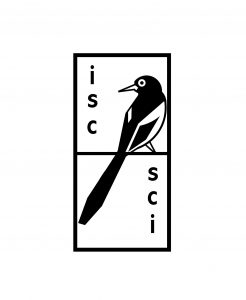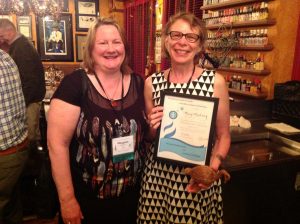The Business of Indexing: Doing it Right
Our 2015 annual conference will take place on 28 and 29 May at the Harbour Towers Hotel in Victoria, British Columbia. Registration is open, see below.
L’Indexation côté affaires : les bonnes pratiques
Notre congrès annuel de 2015 se tiendra les 28 et 29 mai, à l’hôtel Harbour Towers à Victoria en Colombie-Britannique. Vous pouvez vous inscrire dès maintenant.
Registration is now closed.
Calling all lovers of books, chocolate, coffee and tea!
Schedule and rates :: Horaire et forfaits
Member rates:
$325 two day regular rate
$175 one day regular rate
Note: Member rates apply to members of other indexing societies, as well as to EAC/ACR and PEAVI members.
Non-members:
$375 two day rate
$200 one day rate
Conference schedule
Wednesday 27 May, 6 pm onwards
Please join us on Wednesday night for an informal dinner at Swans Brew Pub. Located in the heart of Old Town Victoria by Market Square, Swan’s is a landmark pub featuring an on-site brewery with award-winning beers and delicious meals in a heritage setting. We’ll be there at 6pm, so come for a drink or dinner or just to say hello.
Conference
Thursday 28 May, 8:45 am to 4:45 pm
Sylvia Coates: Keynote speech
Heather Ebbs and Thérèse Shere: Making Time: Work Wisely So You Can Play More
Annual General Meeting
Raymond Frogner: Building Houses of Memory: Rewriting Professional Standards
JoAnne Burek: Business Continuity and Disaster Preparedness for Freelancers
Stephen Ullstrom with Mary Newberry: Cross-Border Indexing: Regulations and Considerations
Gillian Watts: Watching the Pennies: Finances for Freelancers
Friday 29 May, 9 am to 5 pm
Lucie Haskins: Jumping on the Embedded Indexing Bandwagon – Or Should I?
Sylvia Coates: The Business of Indexing – Indexing Efficiency, Speed, and Earnings
Alan Walker: Order and Chaos in Indexing, Editing and Publishing
Kendra Millis: Marketing Your Indexing Business
Julie McClung and Rosalind Guldner: Ethical Indexing Practices: The Indexer as Intermediary
En français : Congrès SCI 2015_francais
ISC/SCI Banquet, Thursday 28 May, 6:15 pm
The ISC Banquet will be held in the Legislative Dining Room of the historic Parliament Buildings. Facing the Inner Harbour, the “People’s House” is one of the most beautiful and architecturally significant buildings in British Columbia. Banquet attendees will be able to view the art and interior of the building before proceeding to the Dining Room to enjoy a three-course meal. The Parliament Buildings are a 10-minute walk from the conference hotel. Hope to see you there!
Sessions details
Thursday May 28
Keynote (9-10 am) Sylvia Coates, an indexer since 1989, developed and teaches the UC Berkeley Extension indexing course. She lives in the San Francisco Bay Area.
10:15-11:45 am
Title Making Time: Work Wisely So You Can Play More
Description Are you happy with your effectiveness during the workday, or are you less efficient than you’d like to be? Are you bored, overwhelmed, scattered, or distracted? In this lively session we’ll talk about how to recognize and resolve focus and productivity problems. We’ll share practical tips, tools, and strategies for making the most of your working hours and creating more time for all the other things in your life.
Presenters Heather Ebbs has been indexing, editing and writing for more than 30 years. She is a past president of ISC/SCI, the Editors’ Association of Canada and her local curling club.
Thérèse Shere has more than 500 indexes to her credit, as well as several articles and presentations on indexing. She likes to spend non-work time botanizing and playing with her new grandson.
12:45-1:45 pm Annual General Meeting
2-3 pm
Title Building Houses of Memory: Rewriting Professional Standards
Description Archives safeguard and present material that reminds us of our identities: the memories and traditions that combine to create our collective history. Establishing access points to these unique, interrelated records is important to building the collective memory of our society. Digital documents, multicultural societies, distributed and localized governance — the changes in modern society must be reflected in the standards used to arrange and describe our cultural records of enduring value. This talk looks at some examples of how the Royal British Columbia Museum (RBCM) is meeting these challenges.
Presenter Raymond Frogner is an archivist at BC Archives. M.A. University of Victoria; MAS University of British Columbia; University of Alberta Archivist (10 years); RBCM Archivist 3 years. Executive Canadian Council of Archives. Winner Kaye Lamb Prize, 2011; Alan D. Ridge Award, 2011 (archival awards).
3:15-3:45 pm
Title Business Continuity and Disaster Preparedness for Freelancers
Description No business is immune to disasters, and businesses that depend on information technology are particularly vulnerable because of the wide range of problems that can affect them. A disaster or other adverse incident can lead to financial losses and a diminished reputation. Freelance indexers should be concerned about these same things. We will learn the framework that organizations use to assess and reduce their exposure to risk, and apply these principles to the life of freelance work.
Presenter JoAnne Burek is a new indexer specializing in business and general non-fiction. She recently retired from the information technology industry after 36 years.
3:45-4:15 pm
Title Cross-Border Indexing: Regulations and Considerations
Description Canada can sometimes seem like a small pond, unable to provide enough work to sustain full-time indexing. One solution is to look for clients in other countries. But how do we report foreign income on our Canadian tax returns? What are our tax responsibilities in these other countries? How do we deal with overseas payment and exchange rates? These and other pertinent questions will be considered.
Presenter Stephen Ullstrom has been indexing for four years. In 2014 he won the Purple Pen Award for best new indexer. He currently lives in Edmonton.
4:15-4:45 pm
Title Watching the Pennies: Finances for Freelancers
Description This session offers financial tips for indexers who are self-employed, and will be especially valuable for those who are new to freelancing. It stresses the importance of having a financial plan for your business and then watching the bottom line. The focus will be on keeping track of your business’s income and expenses, including invoicing, paying the bills, basic bookkeeping, banking, and tax considerations.
Presenter Gillian Watts has been a freelance editor and indexer for 18 years and treasurer of several organizations, including ISC/SCI, for even longer.
Friday May 29
9-10:30 am
Title Jumping on the Embedded Indexing Bandwagon – Or Should I?
Description What is embedded indexing? What’s the big deal? How is it different from back-of-the-book indexing? Why should I bother with it? Will I be left behind if I don’t? What work is there for embedded indexers? How much will it cost and how much time will it take for me to learn? This session addresses all these questions and more.
Presenter Lucie Haskins became an indexer in 2000 after a long career in corporate America and specializes in embedded indexing and in computer- and business related topics.
10:45-11:45 am
Title The Business of Indexing – Indexing Efficiency, Speed, and Earnings
Description A successful indexing business requires both good indexing skills and excellent business skills. This presentation will include a general overview of the business aspects of indexing, including professional development, business decisions, and client relationships, but the primary emphasis of the discussion will be on indexing speed. Specific indexing techniques designed to increase efficiency and speed, without sacrificing quality, will be discussed and then practised with a series of hands-on exercises.
Presenter Sylvia Coates, an indexer since 1989, developed and teaches the UC Berkeley Extension indexing course. She lives in the San Francisco Bay Area.
12:45-1:45 pm
Title Order and Chaos in Indexing, Editing and Publishing
Description This session looks at the responses of indexers, editors, and publishers to the challenges of information management during the scientific revolution of the 17th century, making a comparison with our own responses to the current, digital information revolution.
Presenter Alan Walker is a former President, a three-times Medal winner, and an Honorary Life Member of the Australian and New Zealand Society of Indexers.
2-3:30 pm
Title Marketing Your Indexing Business
Description The main focus of this presentation is how to develop a marketing plan and marketing materials. Topics will include branding, methods, formats, introductory letters, and follow-ups. Attendees will leave with ideas about what their marketing materials will look like, a list of the materials they plan to use, and ideas for how to put it all together. We will also touch on ongoing marketing throughout your career.
Presenter Kendra Millis, who lives in Maine, has been indexing full-time since 2008, and has expanded her services to include copyediting, proofreading, and project management.
3:45-4:45 pm
Title Ethical Indexing Practices: The Indexer as Intermediary
Description As intermediaries for the text, indexers make decisions about how to accurately reflect source information for future retrieval. An awareness of ethical practices in indexing both serves index users and enhances professional credibility. This session will examine content that challenges indexers: multi-authored works, personal bias, differing points of view, disorganized or poorly presented text, and the power of indexers to distort or censor information, with examples drawn from the indexing of political debates.
Presenters Julie McClung and Rosalind Guldner are experienced indexers of political debates at the British Columbia and Ontario Legislative Assemblies.
 At the ISC/SCI annual general meeting and conference in June 2009, Katherine Barber, founding editor-in-chief of the Canadian Oxford Dictionary department of Oxford University Press, gave a fascinating talk on the history of the word “magpie” and what it has to do with indexing.
At the ISC/SCI annual general meeting and conference in June 2009, Katherine Barber, founding editor-in-chief of the Canadian Oxford Dictionary department of Oxford University Press, gave a fascinating talk on the history of the word “magpie” and what it has to do with indexing.
 Mary Newberry was presented with the Ewart-Daveluy Award for Indexing Excellence at the awards banquet of the joint conference of the Indexing Society of Canada (ISC) and American Society for Indexing (ASI) in Chicago, IL, on 16 June 2016. The award honours Mary’s indexing of The Letterbooks of John Evelyn, volumes 1 and 2, edited by Douglas D.C. Chambers and David Galbraith and published by University of Toronto Press.
Mary Newberry was presented with the Ewart-Daveluy Award for Indexing Excellence at the awards banquet of the joint conference of the Indexing Society of Canada (ISC) and American Society for Indexing (ASI) in Chicago, IL, on 16 June 2016. The award honours Mary’s indexing of The Letterbooks of John Evelyn, volumes 1 and 2, edited by Douglas D.C. Chambers and David Galbraith and published by University of Toronto Press.